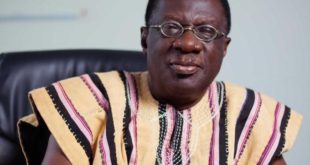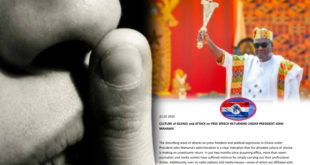Parliament has approved the 2021 budget after a vote.
After the voting, 137 MPs were in favour of approving the budget as against 134 MPs voting against the budget.
The Minority earlier rejected the outcome of the voice vote after calling for the rejection of the budget due to its tax component.
The Speaker granted the application of the Minority for a headcount amid controversy on the Floor.
The voice vote was overseen by the Second Deputy Speaker, Joe Osei-Owusu before the arrival of the Speaker of Parliament, Alban Bagbin.
The 2021 Budget, which is themed “Economic Revitalisation through Completion, Consolidation & Continuity”, seeks to carefully balance fiscal consolidation and facilitate the recovery of our economy following the pandemic.
Some of the proposed taxes in the budget were widely criticised by observers and various stakeholders.
Direct tax measures in the budget included introducing a 5 percent financial sector clean-up levy, the 30 percent income tax rebates for companies operating in the hospitality, among others, the suspension of instalment income tax stamp and vehicle income tax payments from April to December 2021, the extending of the exemption of income tax on capital gains made from the realisation of securities listed on the Ghana Stock Exchange beyond 2021.
But the indirect tax measures courted more controversy.
There were concerns about the price of fuel, among others, after the proposed a 5.7 percent increment in prices of petrol and diesel as part of new levies.
The increment will be as a result of the new 10-pesewa Sanitation and Pollution Levy as well as a 20-pesewa levy to cater for charges on the country’s excess power capacity.
There was also a 1 percent COVID-19 levy which will be a one percentage point increase on both the existing VAT Flat Rate Scheme (VFRS) and National Health Insurance Levy (NHIL).
The Finance Minister-nominee, Ken Ofori Atta, said these taxes would be necessary for funding the coronavirus vaccine rollout as well has health infrastructure.
The Fitch Ratings in its assessment also said the slow pace of the consolidation path outlined by the budget statement and by the accompanying medium-term fiscal framework leaves Ghana exposed to a heavy debt-service burden and risks of fiscal slippage.
The government, on the other hand, has described the taxes as necessary after a revenue shortfall of GHS13.4 billion which was 3.5 percent of GDP.
Expenditure saw an increase of GHS11.8 billion translating into a deficit increase of GHS25.3 billion.
Source: Citinewsroom
 MYGHANAMEDIA.COM Best Source Of Latest News
MYGHANAMEDIA.COM Best Source Of Latest News




